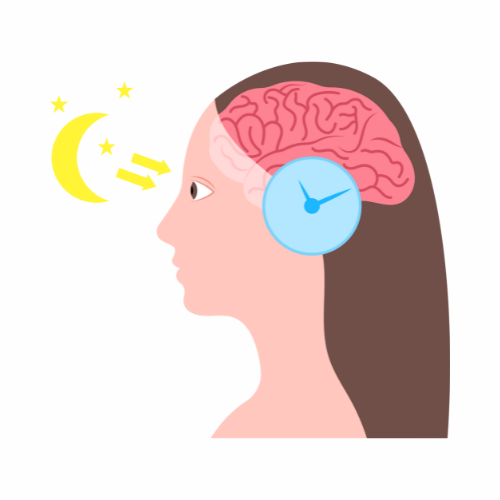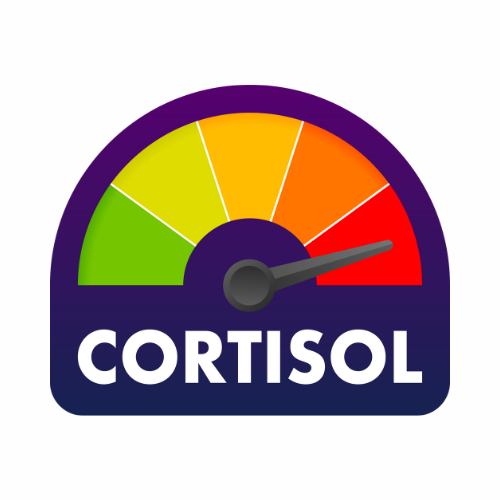adhd and cortisol in women
Understanding ADHD, Stress, and Cortisol: A Guide for Women

ADHD affects women differently than men, especially in terms of managing stress and regulating cortisol. Cortisol, often referred to as the "stress hormone," plays a significant role in how our bodies respond to stress. For women with ADHD, understanding the intricate link between ADHD, cortisol, and hormonal fluctuations can offer insights into how to manage stress and ADHD symptoms more effectively.
What is Cortisol?
Cortisol is the body’s primary stress hormone. It is produced by the adrenal glands and is released when you're under pressure to help you deal with stressful situations. Normally, cortisol levels peak in the morning and gradually decrease throughout the day. However, chronic stress can lead to unbalanced cortisol levels, which can negatively affect your mood, energy, and overall health.
Neurobiological Impact of Cortisol
Cortisol interacts directly with two key areas of the brain:
- Prefrontal Cortex: Responsible for focus, decision-making, and problem-solving.
- Limbic System: Governs emotions and stress response.
When cortisol levels become unbalanced, the functions of these regions are impaired. This makes emotional regulation and focus particularly difficult, which is a challenge commonly faced by women with ADHD.
Emotional Impact of Cortisol Dysregulation
Beyond cognitive challenges, the emotional toll of cortisol dysregulation can be significant. Chronic stress can lead to feelings of hopelessness, emotional numbness, and frustration. Many women with ADHD find themselves stuck in a cycle of being hard on themselves for not managing their stress or ADHD symptoms effectively—leading to even more stress. This emotional feedback loop can further spike cortisol levels, making breaking free from a high-stress state harder.
ADHD and Stress: A Tough Combination
Women with ADHD often find stress management more challenging due to symptoms like distractibility, impulsivity, and disorganization, which can intensify everyday pressures. Women tend to internalize these stressors, which only adds to the burden. Research has shown that ADHD is linked with cortisol dysregulation, which means women with ADHD may produce abnormal levels of cortisol in response to stress.
Cortisol Dysregulation in Women with ADHD
- Blunted Cortisol Response: Some women with ADHD may not produce enough cortisol when faced with stress, leaving them feeling overwhelmed and unable to cope.
- Elevated Cortisol Levels: Conversely, others may produce too much cortisol, leading to feelings of anxiety, jitteriness, and being on edge.
These abnormal cortisol responses can exacerbate the difficulties women with ADHD face in managing stress, compounding both emotional and cognitive challenges.
Hormones and Cortisol: What Women Should Know
In women, hormonal changes throughout life—whether during the menstrual cycle, pregnancy, or menopause—play a significant role in regulating cortisol. Estrogen and progesterone levels can influence cortisol production and affect stress response.
The Menstrual Cycle
During the luteal phase of the menstrual cycle (the phase before menstruation), progesterone levels peak, which may increase emotional sensitivity and anxiety in women with ADHD. This hormonal fluctuation is linked to cortisol regulation, making stress management more difficult during this time.
Perimenopause and Menopause
As estrogen levels drop during perimenopause and menopause, ADHD symptoms often worsen. These hormonal shifts can further disrupt cortisol regulation, intensifying stress and making emotional control even more challenging.

Social Stress and ADHD in Women
In addition to hormonal stressors, women often face unique social stressors—balancing work, family, and household responsibilities. The pressure of juggling multiple roles can lead to elevated cortisol levels, making it harder to manage ADHD symptoms. Many women take on a heavy mental and emotional load, leading to burnout. Recognizing the need to ask for help, delegate tasks, or release perfectionist tendencies can help manage both social stress and ADHD symptoms more effectively.
Cortisol Dysregulation and ADHD Symptoms
When cortisol levels are imbalanced, ADHD symptoms may become more pronounced. Women may notice:
- Difficulty concentrating under stress: Stress can make inattention and distraction more noticeable.
- Overwhelm with daily tasks: A weakened executive function means stress makes planning and organizing even harder.
- Mood swings or irritability: Hormonal shifts can exacerbate mood disturbances, making emotional regulation a challenge.
- Burnout or exhaustion: Chronic stress can quickly deplete energy, leading to fatigue and burnout.
Health Impact of Chronic High Cortisol
Women with ADHD who experience chronic high cortisol levels may face long-term health consequences, such as:
- Increased risk of cardiovascular issues
- Immune suppression
- Higher likelihood of developing anxiety or depression
Managing cortisol levels is, therefore, critical for maintaining overall health, especially in women with ADHD.
Managing ADHD and Stress: Practical Strategies
Understanding how ADHD, cortisol, and hormones interact is key to managing stress effectively. Here are some proven strategies to help balance cortisol levels and improve ADHD symptoms:
1. Mindfulness and Meditation
Mindfulness practices, such as deep breathing or short meditation sessions, can help lower cortisol levels. Even a few minutes of mindfulness each day can reduce stress and bring a sense of calm.
2. Self-Compassion Practices
Many women with ADHD are especially hard on themselves when stress intensifies their symptoms. Acknowledging your struggles without self-criticism and practicing self—compassion can reduce cortisol levels. Self-kindness in moments of failure or frustration can ease stress and improve emotional regulation.
3. Exercise Regularly
Physical activity is a natural way to regulate cortisol and improve ADHD symptoms, such as restlessness. Activities like walking, yoga, or light aerobics can reduce stress and promote emotional stability.
4. Prioritize Sleep
Getting enough sleep is essential for balancing cortisol and maintaining focus. A consistent sleep schedule can reduce cortisol spikes, improve energy, and improve cognitive function.
5. Cognitive Behavioral Therapy (CBT)
CBT is a proven therapy for addressing both ADHD and cortisol-driven stress. It helps women with ADHD manage emotional regulation, negative thought patterns, and anxiety, leading to improved stress responses.
6. Nutritional Support
Certain nutrients support cortisol regulation and reduce stress. For example:
- Omega-3 fatty acids
- Magnesium
- B vitamins
Including these nutrients in your diet can help stabilize cortisol levels and support overall well-being.
7. Track Hormonal Changes
Pay attention to how your ADHD symptoms change throughout your menstrual cycle. This awareness can help you adjust your schedule and self-care routines during particularly challenging times, like just before your period.
You may find tracking apps or journaling helpful for understanding these fluctuations and how they impact stress and ADHD symptoms.
Why This Matters for Women with ADHD
Understanding how cortisol and stress impact ADHD symptoms is essential for women, who are often overlooked in ADHD research. By recognizing how hormonal fluctuations and cortisol dysregulation contribute to ADHD challenges, women can take proactive steps to manage their symptoms more effectively.
Seeking Support Beyond Self-Help
While mindfulness, exercise, and other self-care strategies are helpful, it’s important to recognize when professional help is necessary. Consulting with a therapist, nutritionist, or healthcare provider can help you better understand how cortisol dysregulation is affecting your ADHD and tailor specific treatments to your needs.
Reflection Box:
- How does stress impact your ADHD symptoms?
- Have you noticed changes in focus or mood when stressed?
- Are there times during your menstrual cycle when ADHD symptoms seem worse? How can you adjust your self-care routines during these times?
- What strategies are you currently using to manage stress? Could you improve your mindfulness, exercise, or nutritional support?
- Are you monitoring how your ADHD medication may impact your stress and cortisol levels?
Takeaway Box:
- Cortisol, the primary stress hormone, plays a significant role in how women with ADHD experience and manage stress.
- Hormonal fluctuations, especially during the menstrual cycle and menopause, can worsen ADHD symptoms by impacting cortisol regulation.
- Practical strategies such as mindfulness, self-compassion, exercise, sleep prioritization, and nutritional support can help regulate cortisol and reduce the impact of stress on ADHD symptoms.
- Tracking hormonal changes can help you anticipate and manage periods of increased stress or emotional sensitivity.
- Self-kindness is key: forgiving yourself for perceived failures can ease cortisol spikes and help you manage your symptoms better.
- Understanding the connection between cortisol, hormones, and ADHD empowers women to take control of their stress and ADHD symptoms.





